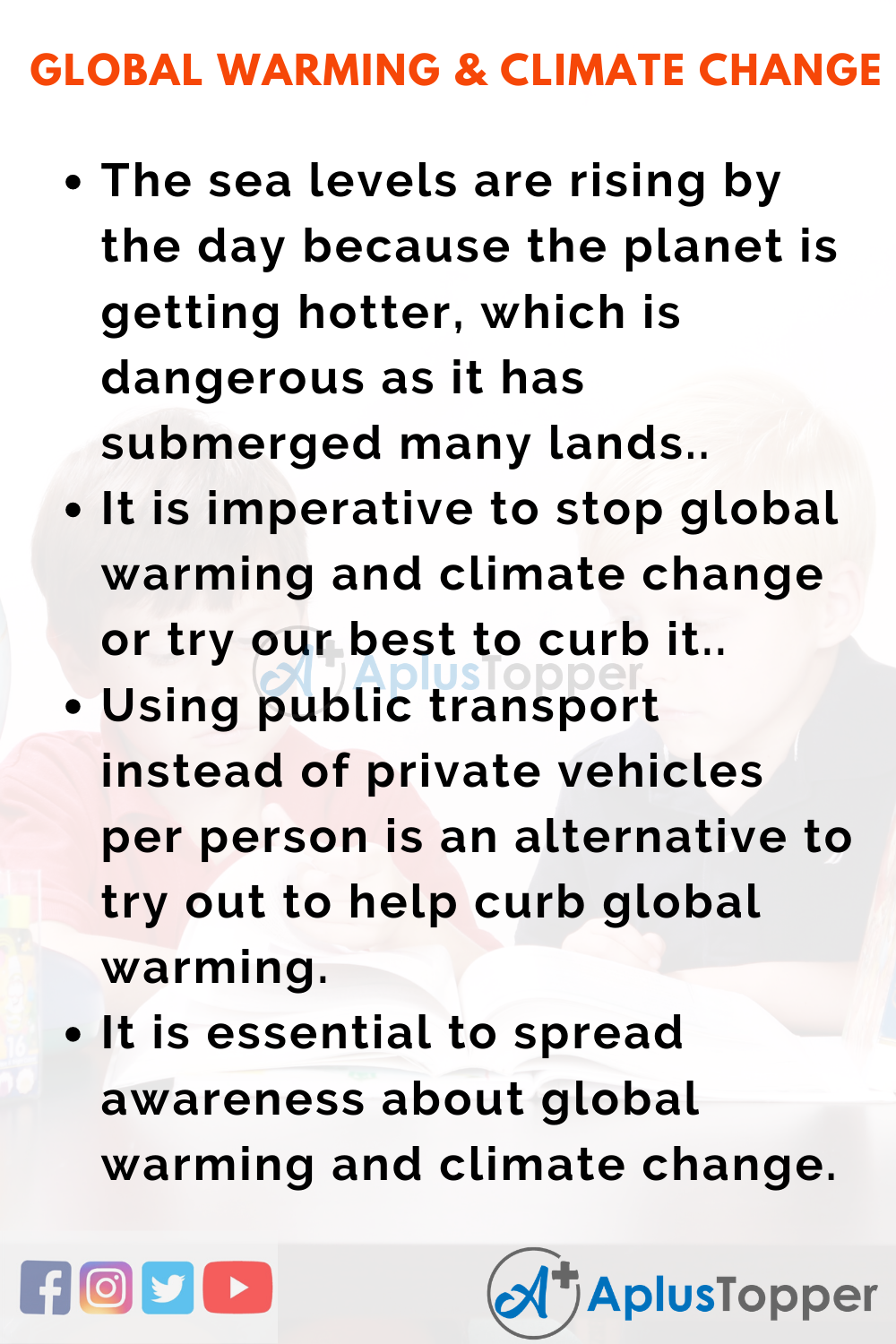Global warming is a pressing issue that affects the entire world. It refers to the rise in average global temperatures, primarily caused by the increase of greenhouse gases in the atmosphere. These gases, such as carbon dioxide, methane, and water vapor, trap heat from the sun and prevent it from escaping back into space. This process is known as the greenhouse effect, and it is essential for maintaining the Earth's temperature and supporting life as we know it. However, the increasing concentration of greenhouse gases in the atmosphere is causing the Earth's temperature to rise at an alarming rate, leading to a host of negative consequences.
One of the main causes of global warming is the burning of fossil fuels, such as coal, oil, and natural gas. These fuels release large amounts of carbon dioxide into the atmosphere when they are burned, contributing to the increasing concentration of greenhouse gases. The burning of fossil fuels is the primary source of energy for many industries, including transportation, electricity generation, and manufacturing. As a result, it is difficult to reduce our reliance on these fuels without major changes to our way of life.
The effects of global warming are far-reaching and potentially catastrophic. Rising sea levels, caused by the melting of polar ice caps and thermal expansion of the oceans, pose a significant threat to coastal communities. Extreme weather events, such as heatwaves, droughts, and storms, are becoming more common and more severe, leading to loss of life and damage to infrastructure. Additionally, the changing climate is having a profound impact on ecosystems and wildlife, as many species struggle to adapt to new conditions.
There are steps that individuals and governments can take to mitigate the effects of global warming and reduce the concentration of greenhouse gases in the atmosphere. One important step is to transition to renewable energy sources, such as solar and wind power, which do not produce greenhouse gases when they are used. Another key strategy is to implement policies and regulations that reduce the use of fossil fuels and encourage the adoption of more sustainable practices. For example, governments can implement carbon pricing schemes, which incentivize businesses and individuals to reduce their greenhouse gas emissions by placing a price on carbon-based fuels.
In conclusion, global warming is a complex and pressing issue that affects the entire planet. The increasing concentration of greenhouse gases in the atmosphere is causing the Earth's temperature to rise, leading to a host of negative consequences, including rising sea levels, extreme weather events, and the disruption of ecosystems. To address this crisis, it is essential that we take immediate action to reduce our reliance on fossil fuels and transition to renewable energy sources. By working together and taking decisive action, we can mitigate the effects of global warming and create a more sustainable future for all.









